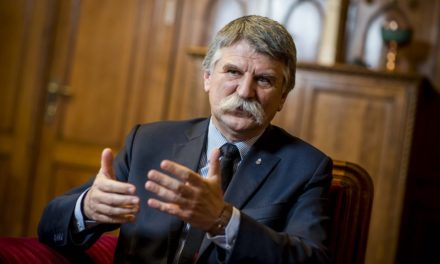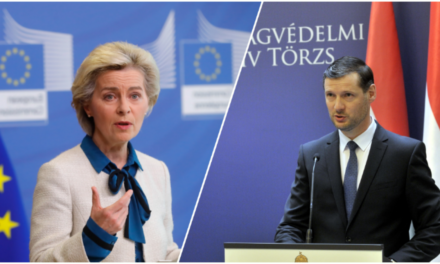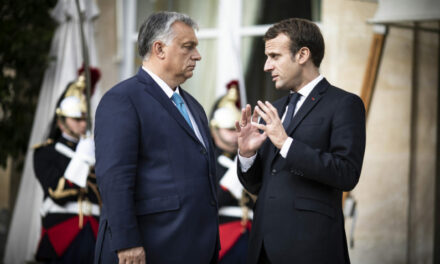The Arab-Israeli war broke out in October 1973, in connection with which the oil-producing countries announced a boycott against the developed industrial countries supporting Israel. As a result, the price of oil increased many times before, which started a general wave of price increases. Hungary's import prices increased twenty percent faster than export prices, resulting in a deficit of six hundred million dollars in the foreign trade balance.
At that time, in the planning office - and I think elsewhere too - the discussion about what should be done began. There were two alternatives: either to reduce import demands by immediately limiting economic growth so that the foreign trade balance would be balanced, or to take out loans. As an employee of the planning office dealing with long-term planning, I made calculations about the expected consequences of borrowing.
In any variation (interest rate, term, grace period), the result is that borrowing can only be a net source of funds for three or four years, after which repayment and interest will necessarily cover the funds that can be drawn, and in the meantime the country will be in debt. Based on this, in every forum where I could speak, I opposed borrowing and said that the rate of growth must be curbed immediately, and the foreign trade balance must be restored.
It is interesting to me that nobody was interested in the calculations, when I spoke against borrowing at some meeting, the speech was followed by silence, they neither supported nor opposed my proposal, they simply did not care about it. Today, our historians blame János Fekete for taking loans, which caused the country to become extremely indebted, even though he only said that loans could be taken, but he did not say that they should be taken. Moreover, few people know that the president of the National Bank at the time, Andor László, vehemently opposed the borrowing, for which Károly Németh, the secretary of the MSZMP KB dealing with economic policy issues, retired him with immediate effect.
So what was the reason why the political leadership decided to borrow? In this regard, let me quote an expert who is certainly more impartial on this issue than I am, the economist Tibor Erdős, who wrote the following in a study dated 1987: "The facts also include the fact that there was no strong opposition from science either to the increase of external debts. (…) Many people in the scientific community – many of those belonging to the progressive wing, perhaps even more – supported a rapid increase in external debt.
Little attention has been paid to the economic prerequisites for useful capital import, and to the fact that capital import always has a strict upper limit, although it depends on the specific conditions. Statements, otherwise true, were often made that the flow of national capital is an integral part of the development and intensification of international economic relations, that it is better to be in the debtor's position in times of inflation, that others also import large amounts of capital, that we need to involve external sources, etc. However, a concrete assessment of the situation was lacking."
For the sake of understanding, let's add that the "progressive" economists were the ones who later formed the professional background of the SZDSZ, and their spiritual successors and their representatives who are still alive can be found in the camp of today's opposition, and they are advocating for entry into the eurozone, which led to the well-known tragedy In the case of Greece and the Southern European member states of the Union in general.
However, the reason why I mention this old story - although its effects are still present - is not the euro, but the goal of the National Energy and Climate Plan, which is to increase the capacity of solar panels to 6,500 megawatts by 2030. This is just as wrong an idea as borrowing was at the time. In order to be able to judge the magnitude of this solar cell capacity, we need to know that the current four blocks of Paks I have a total output of 2,000 megawatts, the Paks II that is under construction. and it will consist of two 1,260-megawatt blocks, for a total of 4,520 megawatts, significantly less than the planned solar plant capacity. However, while the nuclear power plant produces 95 percent of the calendar time, the solar power plant produces only 12 percent of the time, because the sun does not shine at night, and the rated output is also delivered during the day - in cloudless weather, in case of bright sunshine - between 10 a.m. and 2 p.m.
In 2030, Hungary's electricity needs can be met with a power plant capacity of about 7,000 megawatts, which means that if the sun is shining, the nuclear power plants must be turned off, and if there is a thunderstorm or at night, they must be turned back on. . This is technological nonsense. The capacities are built twice only so that when the sun shines, the energy needs are met by the solar power plants, while the nuclear power plant is turned on and off, if this is at all possible in such a (daily) rhythm. they are in the camp of today's opposition, and they are advocating entry into the euro zone, which has led to the well-known tragedy in the case of Greece and the southern European member states of the union in general.
It is to the credit of the authors of the national energy plan that they clearly state that the creation of a carbon-neutral economy is only possible with nuclear energy (page 21).
Furthermore, they also add that "after the integration of 2000 megawatts of solar production capacity into the system, it is necessary to examine from what source and when the financial and infrastructural conditions for further growth can realistically be ensured" (page 25), so they draw attention to the dangers, but at the same time there is the 6,500 megawatts of solar plant capacity set for 2030.
In the 1970s, the mantra of the "progressives" was that it is good to be in debt, today's "progressives", primarily the green movements and generally the mainstream parties, which classify themselves either on the left or on the right, believe that wind and solar power plants should be built , and nuclear power plants must be shut down.
If the climate impact of carbon dioxide can be disputed (actually, it is not a proven fact, but a belief), it can be proven by calculations that climate neutrality (zero carbon dioxide emissions) can only be achieved with nuclear power plants.
But again, no one cares about the calculations. The first objective imposed by the European Parliament was a 40 percent reduction in carbon dioxide emissions by 2030 compared to 1990. The national climate plans were prepared for this. This was then raised to 55 and then 60 percent by a decision, without any calculations on its feasibility.
This is clear evidence that this is not a well-thought-out energy policy, but a political movement, which by its very nature must always raise its goals, otherwise the movement will lose its meaning and disintegrate.
The people sitting in the European Parliament are not responsible for anything, the leaders of the committee are not responsible for anything. If there is no electricity because the wind is not blowing or it is night, the citizens who have visited the pore will hold the leaders of the nation state accountable.
And that time is not far away. On January 8 of this year, the European electricity grid was on the verge of collapse. In Serbia, Croatia and Romania, it stopped for almost an hour and a half, and in France, the electricity supply was interrupted at 16 industrial sites.
The reason: in Germany, where they were the first to build wind and solar power plants and phase out nuclear power, there was no wind and the sky was overcast. And wind and solar power plants only meet about twenty percent of Europe's electricity needs. What if this ratio reaches, say, 70 percent?
The 6,500-megawatt solar plant will destroy about 100 square kilometers of farmland, and in a few decades, the same amount will become hazardous waste, while the price of electricity will skyrocket due to regulatory demands to build and maintain the infrastructure.
Brussels' irrationality manifests itself not only in gender and immigration policy, but also in all other areas, as it wants to conform to the phantasmagorias of various pressure groups. I know that the Hungarian government - and normality in general - is in a difficult situation, but for example in the field of climate policy, the new version of which the committee will come up with this month, could only be achieved by preparing detailed feasibility studies for the set goals.
Image: Origo












